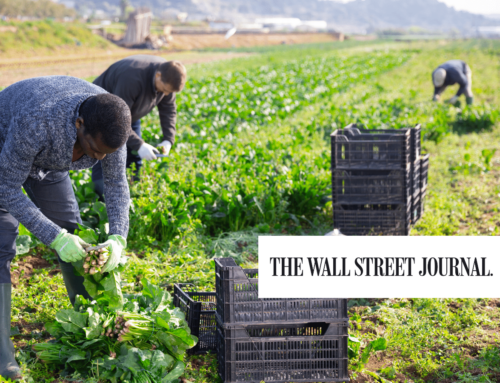For many, Valentine’s Day is an opportunity to express love. Longtime couples rekindle their romance. Secret admirers confess their true feelings. And Congress showers favored special interests not with kisses, but cash from the Treasury. Such is the case, yet again, for agriculture.
The spending deal romcom, with its whisperings of steel slat sweet-nothings and last minute cold feet, is overshadowing an expensive effort by lawmakers to gift additional income subsidies to their parochial agricultural paramours. Most recently the House approved more than $3 billion in new “emergency” income subsidies for agricultural businesses in areas affected by last year’s hurricanes. This is in addition to $2.3 billion in subsidies already directed for 2017. And as the Trump Administration’s love affair with tariffs grows stronger, locking farmers out of foreign markets and leading to lower incomes, the administration is buying its way out of the doghouse with $11 billion in new subsidies, mainly for their bean growing beaus.
The truth is for agriculture, every day is Valentine’s Day. This is especially clear right now as in addition to “emergency” supplemental spending and trade payments, USDA is busy implementing the bevy of blessings Congress gave forth in the recently adopted 2018 Farm Bill. Congress is head over heels for farming and ranching businesses. Let us count the ways.
While many candy lovers are scrambling to find their Sweethearts, Congress planted plenty of sweetheart deals in the 2018 farm bill. Taxpayers will continue picking up the bulk of the tab for farming and ranching businesses that purchase federally subsidized crop insurance, at a federal cost of at least $8 billion a year. But this fails to satisfy many growers, so commodity interest group cupids secured an extension of vastly over budget “shallow loss” income subsidy programs to pay out when losses aren’t deep enough to trigger crop insurance payments.
Spreading the subsidy love for so-called family farms, Congress extended eligibility to all first cousins, nieces, and nephews. No worries if you’re too busy for dinner and a movie, this government version of 23andMe actually removes any requirement these “family” members physically work or live on the farm. And not wanting to leave anyone out, millionaire households are eligible for taxpayer-funded subsidies.
One could easily say Congress has gone a little nuts. There’s funding for a new Macadamia Tree Health Initiative. Pecan producers get special treatment in the Tree Assistance Program, getting federal replanting assistance to kick in when they lose half as many trees as any other type of producer. And the next disaster spending bill will exempt pecan growers from a requirement to buy crop insurance as a condition of receiving aid.
Then there are some truly sweet deals. There’s a grant program to expand markets for producers of maple syrup. Businesses growing sugarcane or sugar beets get to keep their protectionist policies that increase the cost of sugar for American consumers. Then there’s additional crop insurance for sugarcane, sugar beets, sweet sorghum.
Of course no Valentine’s Day would be complete without breaking out the water works. So the farm bill makes it a research priority for USDA to come up with crop insurance for producers that practice “Limited Irrigation Practices,” another for “Subsurface Irrigation Practices,” a policy specific to Irrigated Grain Sorghum, and yet another for Irrigated Rice. It’s enough to make a taxpayer cry.
There is a federal role in agriculture, and taxpayers can show their love by helping farmers and ranchers manage risks they are incapable of managing on their own. But like any successful relationship all parties need to be transparent, responsive to changing conditions, accountable for holding up their end of the deal, and grounded in sound economics. Money troubles are a major cause of failed marriages, after all! So, Congress, why not show a little love for fiscal responsibility? For the sake of the kids, if nothing else.











Get Social